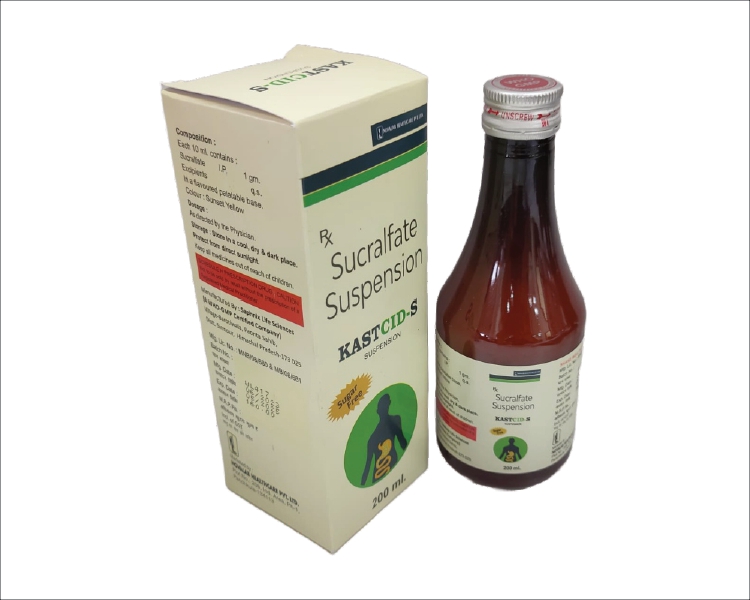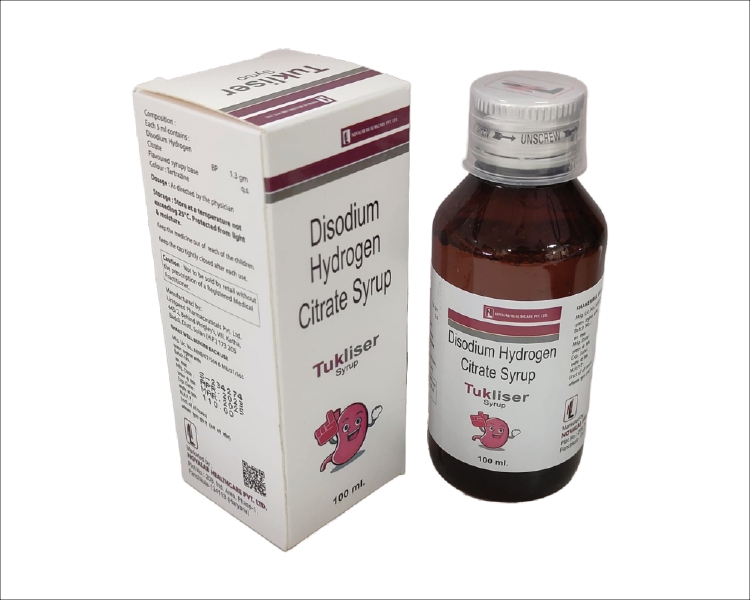-
 Open Hours: Mon- Sat 10:00 am - 06:30pm
Open Hours: Mon- Sat 10:00 am - 06:30pm


Sucralfate and Oxetacaine Suspension Syrup
March 3, 2023
Hydroxyprogestron Caproate 500mg Injection
March 3, 2023Sucralfate Syrup
₹148.00
KASTCID-S
Sucralfate Syrup: is a gastrointestinal problem treatment and prevention medicine. It belongs to the pharmacological class known as gastric protectants. It protects ulcers, inflammatory areas of the stomach as well as the intestines with the help of a protective layer. This protective layer aids in the prevention of future harm and the promotion of healing. The medication is available in syrup form. Syrup formation makes it easier to deliver to patients, like children or those who have difficulty swallowing tablets. Sucralfate Syrup is commonly used to treat problems such as gastric ulcers, duodenal ulcers, gastroesophageal reflux disease (GERD), and stomach lining inflammation. For maximum effectiveness, it should be taken as advised by a healthcare practitioner.
How to Use Sucralfate Syrup
Follow these procedures to correctly utilize Sucralfate Syrup:
- Shake the bottle vigorously.
- Accurately measure the specified dose using a piece of measuring equipment.
- Take it on an empty stomach, at least one hour before or after meals.
- Chew or crush the SYP before swallowing it.
- Do not dilute or combine it with other drinks.
- Follow your healthcare professional’s recommended dosage and regimen.
- Even if you feel better, complete the entire course of treatment.
- To avoid potential interactions, inform your healthcare practitioner about all medications you are taking. For personalized advice, always visit your healthcare professional.
Benefits of Using Sucralfate Syrup
Sucralfate Syrup has several advantages in the treatment of gastrointestinal problems. By allowing damaged tissues to regrow, this layer promotes healing. It reduces the influence of stomach acid on ulcers, hence minimizing acid damage. Its easy-to-administer syrup form makes it ideal for folks who have difficulties swallowing tablets. The medicine has a low risk of negative effects, with little systemic absorption and few interactions with other medications. Overall, the syrup is efficient at protecting the stomach, relieving symptoms, and promoting healing.
How Does Sucralfate Syrup Work?
Sucralfate Syrup acts by forming a protective barrier over ulcers and inflammatory gastrointestinal tract regions. It clings to the wounded tissue, providing a protective layer that protects it from stomach acid and irritants. This barrier prevents future injury and aids in the natural healing process. Sucralfate Syrup also promotes mucus secretion, providing extra protection to the affected areas. It may also have anti-inflammatory properties, aiding in the reduction of inflammation in the gastrointestinal tract.
Uses of Sucralfate Syrup
- Gastric ulcers: these syrups are generally prescribed to heal and prevent the recurrence of gastric ulcers, which are i.e., open sores on the lining of the stomach.
- Duodenal ulcers: Sucralfate syrup is used to treat and prevent duodenal ulcers, which are ulcers located in the first part of the small intestine known as the duodenum.
- Gastroesophageal reflux disease (GERD): It can be prescribed to alleviate symptoms and promote healing in individuals with GERD, a condition characterized by the backward flow of stomach acid into the esophagus, causing heartburn and other symptoms.
- Inflammation of the stomach lining (gastritis): Sucralfate syrup is sometimes used to manage and reduce inflammation in the stomach lining caused by various factors such as infection, long-term use of certain medications, or excessive alcohol consumption.
- Mucosal protection: It may be used to protect the gastrointestinal mucosa during radiation therapy or in cases of stress-related mucosal damage.
Precautions while Using Sucralfate Syrup
While using sucralfate, it is important to take certain precautions:
- Follow the dosing instructions: Take the medication as advised by your healthcare provider. Do not exceed or miss doses without first seeing your doctor.
- Sucralfate may interfere with the absorption of other drugs if taken at the same time. To avoid potential interactions, take Sucralfate at least 2 hours before or after taking other drugs.
- Inform your doctor or nurse: Inform your doctor about all medications you are presently taking, including over-the-counter medications, vitamins, and herbal therapies, to avoid potential drug interactions.
- Allergies and medical conditions: Before beginning Sucralfate syrup, inform your healthcare practitioner of any known allergies or underlying medical disorders.
- Pregnancy and breast-feeding: If you are pregnant, expecting to become pregnant, or breastfeeding, consult your doctor because the usage of Sucralfate syrup may need to be assessed for safety during these times.
- Side effects: Be careful of potential Sucralfate syrup side effects such as constipation or dry mouth. Contact your healthcare practitioner if you experience any unusual or severe side effects.
- Compliance: Finish the entire course of Sucralfate syrup, even if your symptoms improve, to achieve maximum effectiveness.
| PACKING | 200ML |
|---|---|
| Composition | Sucralfate 1gm syp |










 Call Us Number +9570599567
Call Us Number +9570599567 Get PCD Pharma Distributorship
Get PCD Pharma Distributorship
